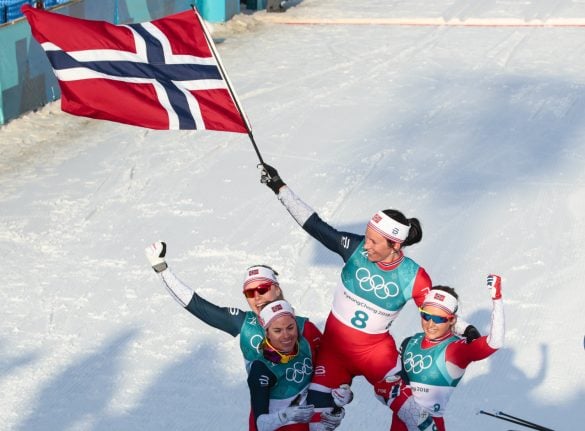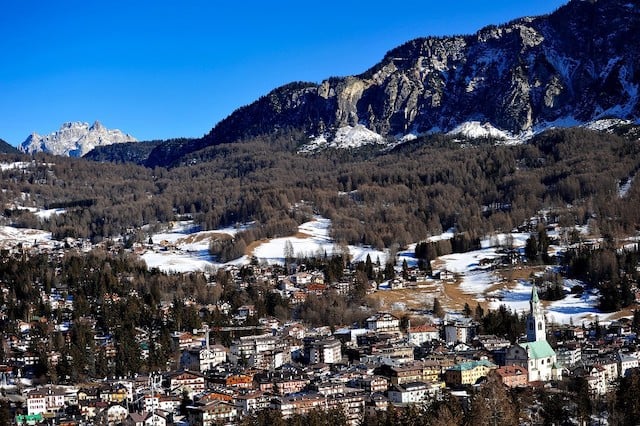Norway finished top of the Pyeongchang medals table on Sunday, winning a record 39 medals — 14 of them gold.
“It's amazing to win this many medals and something to be proud of,” Norway's chef de mission Tore Øvrebø told AFP in an interview.
“But we must keep raising the bar and find new challenges for the future.”
A winter superpower, Norway failed to win a single gold or silver medal in Rio two years ago.
“Oh, in the summer it's catastrophic,” sighed Øvrebø. “We want to improve our system in the summer sport.”
But Norway's prowess at winter sports is freakishly impressive.
From the record-breaking feats of Marit Bjørgen to Aksel Lund Svindal's dashing victory in the downhill to the extravagantly bushy moustache of Robert Johansson, who anchored Norway to team ski jumping gold, the Scandinavians have sparkled, outperforming Germany, Canada and the mighty United States.
Their success owes much to a quaintly egalitarian approach based on camaraderie and bonhomie — from grassroots all the way to Olympic level.
“We are not super-human,” insisted Øvrebø. “It is organic. This is about organisation, it's about values, it's about hard work.”
Norway's tight-knit philosophy means top Norwegian skiers share hotel rooms to further strengthen team bonding.
Many Norwegian athletes have day jobs to support their Olympic dreams. The team has carpenters, plumbers and teachers among its ranks, said Øvrebø.
“We are part of the real world — we are not like a fairytale,” he insisted. “It's hard work.”
Norway's strength lies in its team spirit.
The athletes go to eat tacos together on Friday nights after training, and inflated egos are not tolerated.
“No jerks allowed!” said Øvrebø, referencing remarks made by alpine skier Kjetil Jansrud.
“There's no good explanation for why you have to be a jerk to be a good athlete,” declared the downhill silver medallist, outlining the team ethos.
“We just won't have that kind of thing on our team.”
Øvrebø nodded in agreement.
“That kind of culture develops true leadership,” he said. “We have prima donnas in Norway too. But they're winning medals — and they're easier to deal with then.”
Despite hitting the right notes in Pyeongchang, Øvrebø revealed that it had been a long struggle for Norway to establish its 'Olympiatoppen' system to develop elite athletes.
“We are strong now but it has not always been like this,” said Ovrebo.
“It's a vulnerable flower so we have to be very sensitive in the way we do things.”
Norwegians considered it a national shame when they finished behind Sweden at the 1988 Calgary Games, failing to win a single gold medal.
But the 1994 Lillehammer Olympics in Norway lit a fuse for many aspiring athletes.
“I'm old enough to remember Lillehammer,” said skier Leif Kristian Nestvold-Haugen. “It was very inspirational.
“If you see other countries, the talents go to football or basketball. Most Norwegians want to become role models in winter sport.”
Øvrebø underlined what it is that makes the Norwegians tick.
“It can be really tough to be a part of the Norwegian sports system because the ambition is so high,” he said.
“These guys who are winning at the Olympics are guys who have an extreme need to come first. They are obsessed about winning.”
READ ALSO: Record-breaker Bjørgen puts Norway top of final tally




 Italy's champion skier Sofia Goggia was in Lausanne to back the Italian bid. Photo: Fabrice Coffrini/AFP
Italy's champion skier Sofia Goggia was in Lausanne to back the Italian bid. Photo: Fabrice Coffrini/AFP Please whitelist us to continue reading.
Please whitelist us to continue reading.